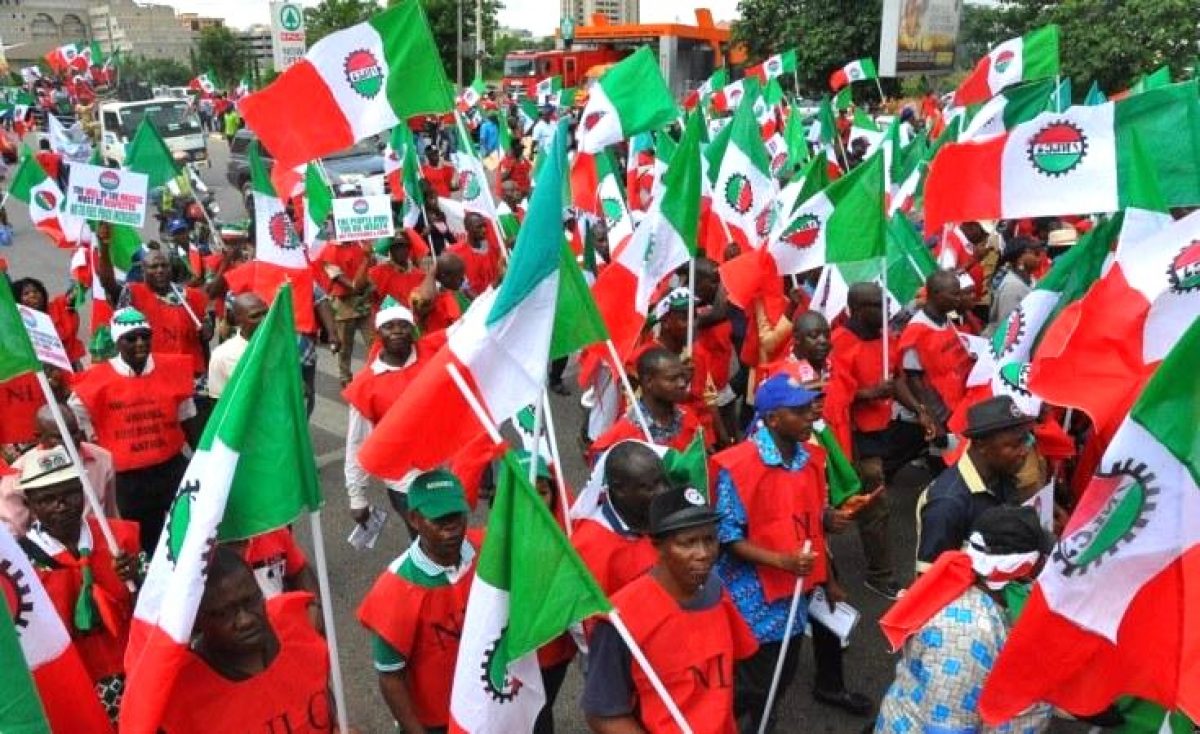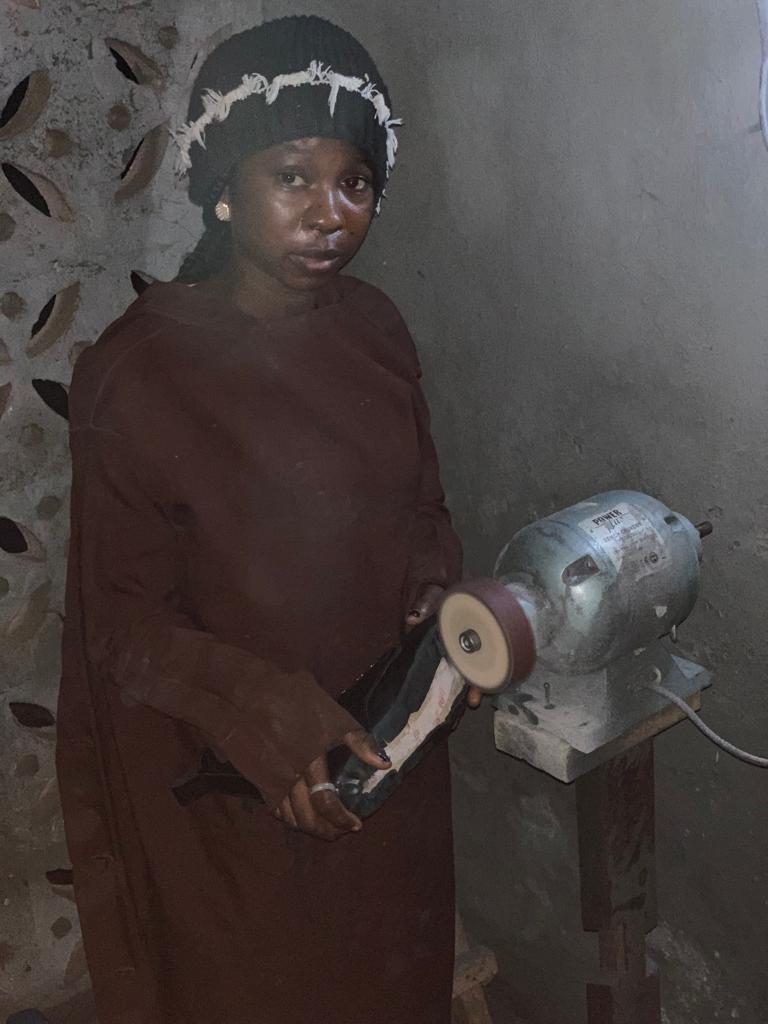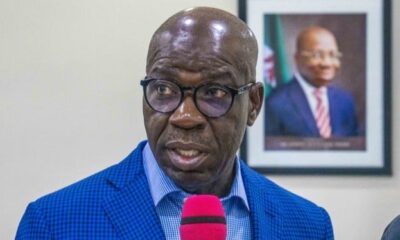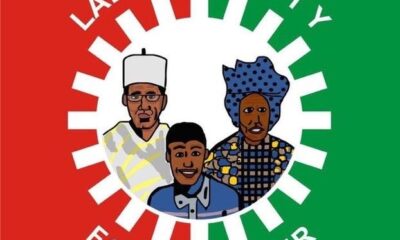FEATURE
Minimum Wage: Addressing poor implementation by states

Minimum Wage – the minimum amount of remuneration that an employer is required to pay wage earners for the work performed during a given period – remains a sensitive matter.
The purpose of establishing a minimum wage is to protect workers against exploitation, reduce income inequality, alleviate poverty and promote social and economic well-being.
In Nigeria, minimum wage is based on monthly income with an average working period of eight hours daily and five days weekly.
It is expected to be reviewed every five years. The last review was in 2019, from N18, 000 to N30,000.
As Nigerian workers expect a new minimum wage in 2024, President Bola Tinubu has promised that it will take effect from April.
Workers’ expectations on the minimum wage have been high through their two major labour centres, the Nigeria Labour Congress (NLC) and Trade Union Congress (TUC).
Workers cross the country are optimistic that the Tripartite Committee on the National Minimum Wage, which was set up by the Federal Government on Jan. 30 to determine the new minimum wage, will be realistic in determining the new wage amount.
They expect the committee to put into consideration the high inflation rate of 31.7 per cent in February from 29.9 per cent reported by the National Bureau of Statistics in January, among other factors.
The President of the NLC, Mr Joe Ajaero, had stated that if the inflation would continue, organised labour might push for a new minimum wage of up to one million Naira for Nigerian workers.
Proposals by TUC and NLC at recent public hearings in the six geopolitical zones and Abuja, indicate that the organised labour may slash the demand from one million Naira but still expects the wage to be able to absorb financial pressures faced by the Nigerian worker today.
During the zonal public hearings in Lagos, Kano, Enugu, Akwa Ibom, Adamawa and Abuja, workers in the North-West requested for N485,000, North-East, N560,000; North-Central, N709,000 (NLC), and N447,000 (TUC); South-West, N794,000; South-South, N850,000; and South-East, N540,000 by NLC and N447,000 by TUC.
According to the Chairman of Enugu State Chapter of the NLC, Mr Fabian Nwigbo, the value of N30,000 minimum wage approved in 2019 had been battered by inflation and worsening economic hardship.
Nwigbo argues that Nigerian workers remain the least paid in the entire West Africa.
“We are asking our leaders to consider the plight of Nigerians. It should be N540,000 per month,” he recommends.
The Secretary of the Nigeria Labour Congress, Mr Chris Onyeka, regrets that many workers can no longer afford their rents or pay their children’s school fees.
He is also worried that with increase in the cost of transport by almost 300 per cent, many civil servants are trekking to work.
Onyeka says every worker wants to earn a favourable income.
‘’We expect that the minimum wage will take care of the basic needs of the average Nigerian family.
“How much will that be? A loaf of bread that used to cost N600 is now almost N2,000.
‘’For a family of six, will a loaf of bread be enough for them in a whole day? Will they not also, at least, take water to eat that bread?
‘’An average family will not spend anything less than N15,000 everyday to take care of themselves; we are talking about a salary that will meet those needs,” he emphasises.
The Lagos State Chairman of Radio, Television, Theatre and Arts Workers’ Union of Nigeria, Mr Ismail Adejumo, is looking forward to a holistic review of the minimum wage.
Adejumo, who is also the Public Relations Officer, NLC, Lagos State Chapter, says: “There are parameters to be considered, and expectations from the workforce in terms of productivity too can be measured side-by-side with what government will do in terms of fixing minimum wage.
“As for the parameters, the cost of commodities is a key factor, and the issue of transportation is a key factor.
“We should also be looking at the issue of housing, we have shortage of housing in Lagos vis-a-vis the population; it is really affecting most working class.”
While expectations on the new minimum wage remain high, analysts argue that the challenge about minimum wage in Nigeria is not approval but implementation especially by state governments and some private employers.
They argue that since inception, minimum wage in Nigeria has suffered non-compliance by some state governments and private employers due to inability to pay and reluctance to pay.
Thus, they believe that ability to pay is very crucial when considering review of minimum wage.
At the recent public hearing organised by the Tripartite Committee on National Minimum Wage across the six geo-political zones of the country, Osun State Gov. Ademola Adeleke, who represented the governors in the South-West Zone, said that states lacked equal ability to pay.
‘’While it will be desirable to see that a uniform minimum wage is agreed to on a national basis, it will amount to self-deceit to assume that states have equal ability to pay.
‘’To this effect, I will humbly advise that individual states will have to negotiate with their workers and agree to a realistic and sustainable minimum wage in line with available resources, ‘’ Adeleke said.
However, the Assistant General Secretary of NLC, Onyeka, argues that state governments are not complying because there are no consequences for their non-complaince.
‘`If there were, I believe, many will be complying.
‘’The Federal Ministry of Labour and Employment, which is empowered by law to check abuses and violations of the extant law, does not have the capacity to monitor or enforce.
‘’When we look at the mechanism put in place by the Act to check non-compliance, reporting and enforcement, is the mechanism effective? It has to be strengthened, so that it will become effective,” he argues.
Prof. Kemi Okuwa, a Research Professor at the Nigerian Institute of Social and Economic Research, notes that Nigeria is number 44 in minimum wage cadre in Africa.
Okuwa made a presentation at the recent South-West Zonal public hearing, which took place in Lagos
According to her, the current N30,000 minimum wage is equivalent to $20 per month.
For the Director-General, Nigeria Employers’ Consultative Association, Mr Adewale-Smatt Oyerinde, there must be critical review of the current minimum wage by all stakeholders.
Oyerinde also urges appropriate recommendations, approval and implementation.
Meanwhile, the Nigeria Governors’ Forum (NGF) wants the tripartite committee to take into account the present circumstances, unique characteristics of individual states, and their effects on the abilities of both governments and private sector employers to pay, when determining the new wage amount.
In a communiqué issued after its virtual meeting, and signed by its Chairman and Kwara governor. AbdulRahman AbdulRasaq, and made available to journalists on Thursday, the NGF said: “Members reviewed the progress of the National Minimum Wage Committee and ongoing multi-stakeholder engagements towards agreeing on a fair minimum wage.
“Members urged the National Minimum Wage Committee to consider the current realities, individual states’ peculiarities, and consequential impact on the capacity of government as well as private sector employers to pay.
“Members also emphasised the need for proposals to be data-driven and evidence-based,” he said. Analysts urge the 37-member tripartite committee, comprising government representatives, the organised labour, and employers association, to ensure that the new minimum wage reflects the evolving economic landscape.
They advise that the minimum wage should meet the needs of the Nigerian worker, urging also that it should be implementable and sustainable.
FEATURE
Meet Ibadan fastest growing female cobbler, Bami Oníbàtá


By Toheeb Babalola
Championing the world’s oldest professions by women ought not to emerge as a surprise due to the fact that all genders have equal fundamental rights in choosing careers without prejudice.
Shoemaking industry has been a key industry in Sub Saharan Africa dominated by male gender since the 18th century. Shoemaking, which is a business of joining leather, soles and materials to produce sandals, shoes, flip-flops, etc. for the use of human beings, had outrightly shut out females.
The root of this inequality could be traced to the African belief which placed women in the kitchen, and this has deprived them of their creative abilities to be seen or heard for decades. The tradition only prioritised men as the breadwinners of each household.
With the consistent awareness and advocacy for gender equality all around the globe, women have risen from their slumber, freed themselves from barriers and have started pursuing whatever profession they want. Nonetheless, Africa is blessed with extraordinary women who are already flourishing in the businesses initially owned by their counterparts, and Miss Mudirat Olabami Abayomi, seems to be one of them.
In a recent interview with Nigerian NewsDirect Newspapers at her workshop in Sango, Ibadan, Miss Abayomi, professionally called ‘Bami Onibata – Yoruba meaning of “the shoemaker,” revealed her struggles in the industry.
Bami Oníbàtá is an alumnus of one of the great citadels of learning in South-West Nigeria, The Polytechnic, Ibadan, she makes different kinds of footwear in less than three (3 hours) hours without any helping-hand.
She stormed the shoemaking industry with the passion of changing the narrative and pioneering the inclusion of women (most especially Ibadan residents) in the trade.
The 25-year-old shoemaker was officially welcomed into the profession at a workshop in Oke Ado, Ibadan South West Local Government Area of Oyo State, immediately after her National Diploma, ND, programme, where she learned how to make Ankara shoes and bags for the female gender.
As a dynamic woman, Bami never allowed the lockdown (occasioned by COVID-19 pandemic) in 2020, deter her resolve to achieve fame in her chosen career, as she was always reporting for duty, finding her way from her Oluyole residence to her master’s workshop, it also did not stop her from fully delving into making different shoes for both gender. This endeared her to her trainer and master, especially her commitment and accuracy.
Bámi stated that, “In our workshop, we make shoes from scratch and my master hates sluggishness. I knew what I was up against and I did everything to prove I could learn faster. So, I learned everything in shoemaking within six months; though, I must confess that it wasn’t easy.”
Her commitment and diligence while learning the trade with other male apprentices endeared Bámi to her master’s clients, who always preferred her to repair their shoes for them to test her level of understanding of the trade.
But, she proved them all wrong in their perceived insinuations, springing surprises on them.
She however revealed that stereotypism by the male gender, who believes that she is foraging into an exclusive world of the male gender has not made things easy, she said, “The underestimation from people, especially the male gender, who are into it already relegate my gender from the trade. Since I delved into the profession, there has been little turn out.”
However, she enjoyed the support of her parents and relatives, and this has smoothen her journey into the shoemaking world. “Since I told them the reasons for my decision, they have nothing than to support me morally and financially,” she enthused.
Bámi Oníbàtà obtained her freedom from her master in December 2020, and ended up securing a job in one of the best shoemaking firms in Ibadan, Mow Footies, where she worked for 10 months before returning to school for her Higher National Diploma, HND, in 2021.
Combining lectures, which run from morning till evening with her work, Bámi began to source for clients on social media, making use of her friend’s workshop near The Polytechnic, Ibadan main gate.
“Most times, I will have to rush to the workshop during a break after two lectures, and rush back just to attend another lecture. And sometimes, I will work till night, just to meet up with the deadlines of my clients. I don’t fail my clients. My four-hour time frame for delivery/pick does not change,” She added.
With her commitment to delivery time, Bámi got more clientele through her clients, who recommended her and gave good feedback about her. She has made shoes for lecturers at her department; they recommended her to their colleagues in and outside the campus.
“There was a particular lecture, Public Relations Case Studies, the course lecturer, Mr. Olubukola Adio, used my brand, Bámi Oníbàtà, as a case study for the course. It gives my work more publicity on campus,” She revealed with a smile.
Bámi has been nominated for an award in the Best Entrepreneur category by the Union of Campus Journalists, The Press Council, TPI, The Polytechnic, Ibadan, which will come up on August 11.
Bámi, also a freelance On-Air-Personality, OAP, is currently conducting her final academic research study for the award of Higher National Diploma, HND, in Mass Communication.
She has a piece of advice for her gender, she encourages others not to feel inferior in anything they set out to do.
Addressing issues surrounding gender inequality, Fatimah Id¹ra, a Journalist and Gender-based Activist, clamoured for full participation of women in all sectors. Stressing that some professions are still lacking women representation.
Fatimah, crediting Bami, stated that female shoemakers are more influential than their male counterparts, and they easily drive the market and make profits despite the tough economy.
“It is not news that the women are doing better than the men in any area of specialisation. In journalism, as a case study, women are getting shortlisted for international fellowships and winning more investigative awards within and outside Nigeria. This is to confirm the fact that we (women) are taking over the world,” she said.
Bami Oníbàtá is currently embarking on a journey to camp for a year of mandatory youth service, National Youth Service Corps (NYSC).
FEATURE
Minimum Wage: Addressing poor implementation by states


Minimum Wage – the minimum amount of remuneration that an employer is required to pay wage earners for the work performed during a given period – remains a sensitive matter.
The purpose of establishing a minimum wage is to protect workers against exploitation, reduce income inequality, alleviate poverty and promote social and economic well-being.
In Nigeria, minimum wage is based on monthly income with an average working period of eight hours daily and five days weekly.
It is expected to be reviewed every five years. The last review was in 2019, from N18,000 to N30,000.
As Nigerian workers expect a new minimum wage in 2024, President Bola Tinubu has promised that it will take effect from April.
Workers’ expectations on the minimum wage have been high through their two major labour centres, the Nigeria Labour Congress (NLC) and Trade Union Congress (TUC).
Workers across the country are optimistic that the Tripartite Committee on the National Minimum Wage, which was set up by the Federal Government on Jan. 30 to determine the new minimum wage, will be realistic in determining the new wage amount.
They expect the committee to put into consideration the high inflation rate of 31.7 per cent in February from 29.9 percent reported by the National Bureau of Statistics in January, among other factors.
The President of the NLC, Mr Joe Ajaero, had stated that if the inflation would continue, organised labour might push for a new minimum wage of up to one million Naira for Nigerian workers.
Proposals by TUC and NLC at recent public hearings in the six geopolitical zones and Abuja, indicate that the organised labour may slash the demand from one million Naira but still expects the wage to be able to absorb financial pressures faced by the Nigerian worker today.
During the zonal public hearings in Lagos, Kano, Enugu, Akwa Ibom, Adamawa and Abuja, workers in the North-West requested for N485,000, North-East, N560,000; North-Central, N709,000 (NLC), and N447,000 (TUC); South-West, N794,000; South-South, N850,000; and South-East, N540,000 by NLC and N447,000 by TUC.
According to the Chairman of Enugu State Chapter of the NLC, Mr Fabian Nwigbo, the value of N30,000 minimum wage approved in 2019 had been battered by inflation and worsening economic hardship.
Nwigbo argues that Nigerian workers remain the least paid in the entire West Africa.
“We are asking our leaders to consider the plight of Nigerians. It should be N540,000 per month,” he recommends.
The Secretary of the Nigeria Labour Congress, Mr Chris Onyeka, regrets that many workers can no longer afford their rents or pay their children’s school fees.
He is also worried that with an increase in the cost of transport by almost 300 per cent, many civil servants are trekking to work.
Onyeka says every worker wants to earn a favourable income.
‘’We expect that the minimum wage will take care of the basic needs of the average Nigerian family.
“How much will that be? A loaf of bread that used to cost N600 is now almost N2,000.
‘’For a family of six, will a loaf of bread be enough for them for a whole day? Will they not also, at least, take water to eat that bread?
“An average family will not spend anything less than N15,000 everyday to take care of themselves; we are talking about a salary that will meet those needs,” he emphasises.
The Lagos State Chairman of Radio, Television, Theatre and Arts Workers’ Union of Nigeria, Mr Ismail Adejumo, is looking forward to a holistic review of the minimum wage.
Adejumo, who is also the Public Relations Officer, NLC, Lagos State Chapter, says, “There are parameters to be considered, and expectations from the workforce in terms of productivity too can be measured side-by-side with what the government will do in terms of fixing minimum wage.
“As for the parameters, the cost of commodities is a key factor, and the issue of transportation is a key factor.
“We should also be looking at the issue of housing, we have a shortage of housing in Lagos vis-a-vis the population; it is really affecting most working class.”
While expectations on the new minimum wage remain high, analysts argue that the challenge about minimum wage in Nigeria is not approval but implementation especially by state governments and some private employers.
They argue that since inception, minimum wage in Nigeria has suffered non-compliance by somestate governments and private employers due to inability to pay and reluctance to pay.
Thus, they believe that ability to pay is very crucial when considering the review of minimum wage.
At the recent public hearing organised by the Tripartite Committee on National Minimum Wage across the six geo-political zones of the country, Osun State Gov. Ademola Adeleke, who represented the governors in the South-West Zone, said that states lacked equal ability to pay.
“While it will be desirable to see that a uniform minimum wage is agreed to on a national basis, it will amount to self-deceit to assume that states have equal ability to pay.
“To this effect, I will humbly advise that individual states will have to negotiate with their workers and agree to a realistic and sustainable minimum wage in line with available resources,” Adeleke said.
However, the Assistant General Secretary of NLC, Onyeka, argues that state governments are not complying because there are no consequences for their non-compliance.
“If there were, I believe, many will be complying.
“The Federal Ministry of Labour and Employment, which is empowered by law to check abuses and violations of the extant law, does not have the capacity to monitor or enforce.
“When we look at the mechanism put in place by the Act to check non-compliance, reporting and enforcement, is the mechanism effective? It has to be strengthened, so that it will become effective,” he argues.
Prof. Kemi Okuwa, a Research Professor at the Nigerian Institute of Social and Economic Research, notes that Nigeria is number 44 in minimum wage cadre in Africa.
Okuwa made a presentation at the recent South-West Zonal public hearing, which took place in Lagos
According to her, the current N30,000 minimum wage is equivalent to $20 per month.
For the Director-General, Nigeria Employers’ Consultative Association, Mr Adewale-Smatt Oyerinde, there must be a critical review of the current minimum wage by all stakeholders.
Oyerinde also urges appropriate recommendations, approval and implementation.
Meanwhile, the Nigeria Governors’ Forum (NGF) wants the tripartite committee to take into account the present circumstances, unique characteristics of individual states, and their effects on the abilities of both governments and private sector employers to pay, when determining the new wage amount.
In a communiqué issued after its virtual meeting, and signed by its Chairman and Kwara governor. AbdulRahman AbdulRasaq, and made available to journalists on Thursday, the NGF said, “Members reviewed the progress of the National Minimum Wage Committee and ongoing multi-stakeholder engagements towards agreeing on a fair minimum wage.
“Members urged the National Minimum Wage Committee to consider the current realities, individual states’ peculiarities, and consequential impact on the capacity of government as well as private sector employers to pay.
“Members also emphasised the need for proposals to be data-driven and evidence-based,” he said.
Analysts urge the 37-member tripartite committee, comprising government representatives, the organised labour, and employers association, to ensure that the new minimum wage reflects the evolving economic landscape.
They advise that the minimum wage should meet the needs of the Nigerian worker, urging also that it should be implementable and sustainable.
FEATURE
Insecurity: Any role for ex-servicemen?
Insecurity in Nigeria is not only a threat to the safety of humans. It also has wide reaching implications for food security and the economy.
It is safe to argue that since the nation gained political independence in 1960, apart from the civil war period, the country has not faced a more security challenge as it has in the past decade.
Thousands of lives have been lost, farmers are being displaced from their farmlands while kidnappers that once prowled the highways now lurk around their prey in the cities while Boko Haram menace has not stopped.
Mitigating the factors that make the security challenge fester as well as stopping it has become Nigeria’s number one priority because no nation thrives under a security crisis.
Doing so will make Nigerians feel safe in their country once more, restore foreign investors’ confidence and put less pressure on the nation’s security structure.
Parts of the country that seemed to be safe from the challenge such as the Federal Capital Territory (FCT) and Kwara now also feel the heat.
According to data curated by the Armed Conflict Location & Event Data Project (ACLED), in 2023 more than 8,119 people were killed in more than 4,326 violent events across Nigeria.
ACLED is a US.-based disaggregated data collection, analysis, and crisis mapping project that uses real-time data and analysis sources on political violence and protests worldwide.
Security experts have suggested different approaches to solving the problem include the now famous ‘carrot and stick’ method, as well as outright onslaught against the criminals.
However, other experts say the nation’s security chiefs could harness the experience and knowledge of ex-servicemen as they seek to end the challenge.
In 2023 the immediate past Chief of Defence Staff (CDS), retired Gen. Lucky Irabor, once mooted the idea of incorporating retired military personnel to help in the fight against insecurity.
According to him, retirees can combine their experience of living with civilians as retirees and their military background to provide intelligence that can help in efforts to secure the country.
“To make a significant impact in ensuring that peace takes pre-eminence in the country, we need to fall back on the retired military officers.
“This is because they also live among the people, thereby having a lot to offer regarding security issues.
“Once a military officer, you remain a military officer for life, whether serving or retired. The motto of the country, which is ‘Unity, Peace and Faith,’ is what we swore to defend, and we are committed to it,” he had said.
However, Chief Akpodiogaga Emeyese, one time member representing Ethiope East Federal Constituency in the House of Representative, thinks otherwise.
According to him, having retired at 60 years, age is no longer on the side of the retirees to execute assignments such as engaging in rigorous security activities.
He added that young people tend to take up more risky responsibilities than persons above the age of 60 years even though they may still be strong and willing to carry out such assignments.
“Thus, using retired military personnel to resolve our security challenges may not be the best of ideas,” he said.
Similarly, retired Capt. John Ojikutu, an Aviation/Security expert, said that bringing back ex-servicemen was not the solution to fighting insecurity in the country.
Ojikutu said that there was the need for Nigeria to return to the drawing board and begin to do things the way they were done before.
He also faulted the idea of changing the Nigerian Police to the Nigerian Police Force as well as all security agencies trying to carry out the same responsibility,
He opined that such tactics would not yield any positive result, and argued that each security agency ought to work within a specific role, though they must all share intelligence to achieve a common feat.
He said that intelligence must only be shared among the security agencies, adding that not all intelligence should be shared with members of the public.
“I don’t believe in this idea of everybody carrying guns. The police, army and even the NDLEA and Civil Defence.
“As a country, we cannot continue that way at all because we cannot get results.
“Can we go back to how we were doing it? I think what should be done is to look for people that were doing it before and we were getting results.
“Let’s talk to these people and ask them how they were handling internal security before.
“If security is going to be on one agency, then you have intelligence following behind, then you get the information, and they do the analysis,” explained.
Secretary General, Armed Forces Veterans Federation of Nigeria, Dr Awwal Abdullahi, also thinks that the veterans have a role to play in securing the country.
Abdullahi, who is also the spokesperson of the Ministry of Defence Ministerial Committee on Armed Forces, Veterans Welfare said that ex-servicemen could be re-engaged into the fold of the armed forces.
He agrees with Irabor that ex-servicemen may not necessarily be engaged in physical combat but could be useful in intelligence gathering and information dissemination.
He said that having served in the military and now residing among civilians has given them “double experience which will be very useful in what we call technological intelligence gathering warfare.”
He explained that technological in that context meant intelligence gathering using the latest technology, while warfare involves the use of humans to get technical intelligence.
“This is one aspect that can be very, very useful and the federal government can decide to engage us back into the services or provide service of intelligence, technological intelligence and warfare intelligence.
“When I say warfare intelligence it doesn’t mean we have to carry guns to go and start fighting.
“No, we can be reengaged to provide the necessary credible intelligence, timely intelligence, useful intelligence that will mitigate the challenging situation that Nigeria is having in terms of security,” he said.
Another veteran, a retired captain who preferred to be anonymous said that the insecurity in the country was not something unexpected.
He, however, urged the government to find a way of involving retired army generals as think tanks to profile pieces of advice.
“Veterans can help. Let the government call on them. Let them give them a task to do. Let them commission them to do this or do that.
“We have handled arms before and we can still handle them,” he said.
-
capital market2 years ago
Rt.briscoe, FBNH, Others halts negative performance of stock market
-
Finance3 months ago
Court orders Sen. Victor Umeh to repay N136m bank debt to AMCON
-



 Abuja Update2 months ago
Abuja Update2 months agoUNDP, FG partnership needed to achieve inclusion, equity- Minister
-
Abuja Update1 month ago
Banks drive stock market performance with N147bn gain
-



 Health2 weeks ago
Health2 weeks agoCapacity training will reduce migration of health workers- NPHCDA
-



 Business1 week ago
Business1 week agoTingo Group unveils Tingo Electric, Tingo Cola drink at Lagos launch
-



 Infotech4 weeks ago
Infotech4 weeks agoWorld Backup Day: NITDA urges Nigerians to ensure backup of data
-
News4 months ago
Oil thieves sponsoring malicious media campaign against Navy – Spokesman
















